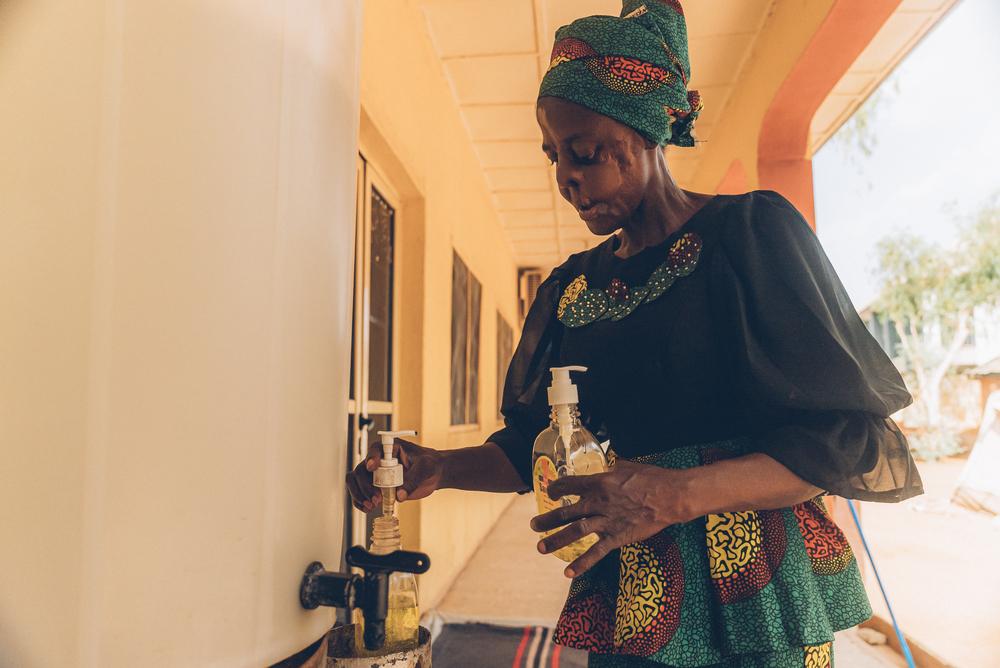“I started my life in an awkward way, not like other children. I was living with my grandparents in their village when I was affected by an unknown disease. They tried what they could, but the disease got worse and rapidly destroyed my face.
I was referred to a teaching hospital near my home and I recovered from the disease. However, it left a deadly mark on my face that hindered me from associating with people in the community. After that I couldn’t go out, I couldn’t go anywhere. Imagine a life where people are running away from you. I couldn’t look at myself in a mirror nor snap pictures like the rest of the people. I lived in loneliness and depression all the time.
Later on, I had surgery in another hospital but, after multiple attempts, it failed. The outcome led to more panic and emotional instability for me and my family. I was crying all the time and I often wished I hadn’t survived to witness the stigma and social impact of the disease.
Luckily, I met a professor in Lagos who referred me to Sokoto Noma Hospital. It was a 24- hour drive away. There, I had my first successful plastic surgery. I had five more rounds of surgery over the next 20 years before getting to this present stage. After that, I finally began to admire myself, to take pictures of myself and to interact with people in the community. I enrolled at school to catch up in life. But still some students didn’t like to interact with me because of the way I looked.
My first job at Sokoto Noma Hospital was as a cook. Later I decided to further my education so that I could have a career. It was tough because I struggled to pay for the classes, but I held on. Today, I have a diploma in health information management.
In January 2018, I started working as a hygiene officer with MSF in Sokoto Noma Hospital, where noma patients are treated for free. I also work with the mental health department. Telling my story encourages noma patients and their families to keep on fighting and gives them hope.
In 2022, my journey as noma advocate took me for the first time outside Nigeria. I was invited to Switzerland and got the opportunity to share my story during the World Health Assembly. The Minister of Health of Nigeria was also there and announced Nigeria was taking the lead in requesting the addition of noma to the World Health Organization’s list of neglected tropical diseases. Its inclusion is key to raising awareness globally and to getting the attention that noma deserves.
My motivation to speak out is because 90 per cent of noma patients die within a few weeks – and that is something that we can prevent. It is important to repeat that noma is a preventable and treatable disease that should not exist anymore.
I also co-founded the first noma survivors’ organisation. Our objective is to support survivors just as we were supported, so they can get a job and an independent life. There is ability in disability and there is nothing that we cannot do.”
